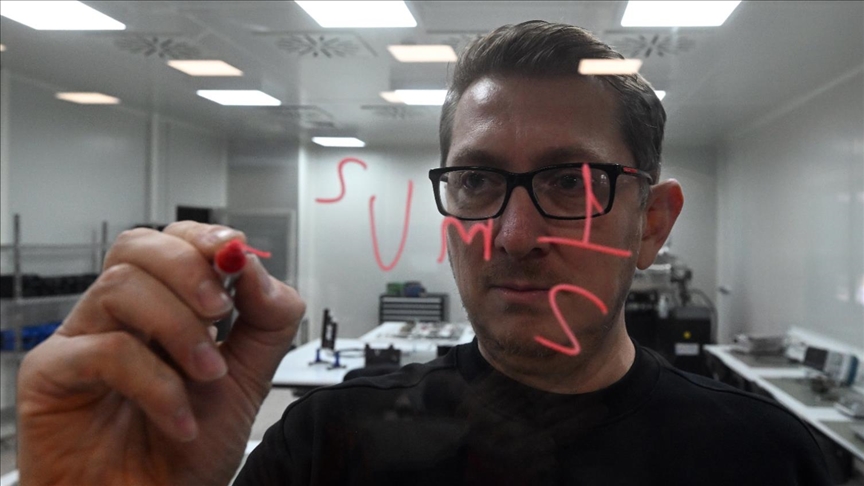

By Anadolu Agency
ANKARA
An ex-NASA Turkish astrophysicist said he returned to Türkiye to do his utmost to help develop an ecosystem that encompasses numerous research centers in science and space.
“My emotions related to Türkiye resurged,” Umut Yildiz told Anadolu in an exclusive interview, speaking just days after Alper Gezeravci, a fighter jet pilot, took a rocket to the International Space Station, making him Türkiye’s very first space traveler.
“I saw that there is much to be done here. Türkiye is particularly underdeveloped in the field of space technologies. What Türkiye needed most was the establishment and development of the space ecosystem. What I want to see in Türkiye is the establishment of more research centers in science and space, along with the formation of more private space companies.”
“People will be more inclined to study these fields, and the number of future professions will increase. After seeing progress in space in Türkiye, children will also start learning in these fields. I came here to do my best for the development of this ecosystem in Türkiye.”
Yildiz said he was always interested in stars and celestial bodies, and after completing his undergraduate education in Türkiye, he pursued a master’s degree abroad and later began working at NASA.
“I worked for about eight years on a space telescope, which stayed in space for approximately four years. It was the largest telescope in the world before the James Webb Space Telescope. Later, I joined a department called Deep Space Communication. We refer to all spacecraft we send 2 million kilometers (1.2 million miles) away from Earth as deep space vehicles. They operate based on frequencies like radio.
“The reason for my departure abroad was the lack of opportunities in the field I wanted to work in Türkiye. I wanted to work on radio telescopes because when I was young, I watched a movie called Contact, and actress Jodie Foster was using such a telescope; it rotated when she pressed a button. I wanted to press that button too. Later on, I did that on many telescopes worldwide. I realized my childhood dream,” Yildiz said.
Indispensable part of human life
Yıldız indicated that space technologies are already an indispensable part of human life, mentioning that the internet is now provided in space. He talked about Plan-S, a company that he has been working for as the deputy general manager for the past two years, sending five satellites into space in the last two years and planning to send several hundred more in the coming years.
“I saw this potential in Türkiye. If it’s happening in our company, I believe it will happen in other companies too. This ecosystem needs to grow and develop further,” he said.
Reflecting on Türkiye sending its first astronaut into space, Yildiz stressed that it was an event they had been dreaming of for years.
“I also really wanted to go. Maybe I’ll be the 1000th or the 10,000th person, but I will go to space. Today’s youth, seeing Alper Gezeravci going to space, will say ‘I can go too, I can do these things.’ I’m sure there will be plenty of opportunities in space during their time,” Yildiz added.
Türkiye’s Moon Program
Yildiız also shared some of the details about Türkiye’s Moon Program, including plans for its engineers to orbit the moon and conduct research, similar to other countries.
“I believe that our Turkish Space Agency should also aim to go to Mars. The astronaut program should become a broader initiative. There should be continuous trips to space. This way, our people will act accordingly, knowing that our future is in space. During my time in Türkiye, I truly saw the potential to accomplish something here.
“Seeing the realization of the National Space Program measures one by one makes me happy. Witnessing these developments in Türkiye strengthens my belief that this determination will continue,” he concluded.
We use cookies on our website to give you a better experience, improve performance, and for analytics. For more information, please see our Cookie Policy By clicking “Accept” you agree to our use of cookies.
Read More